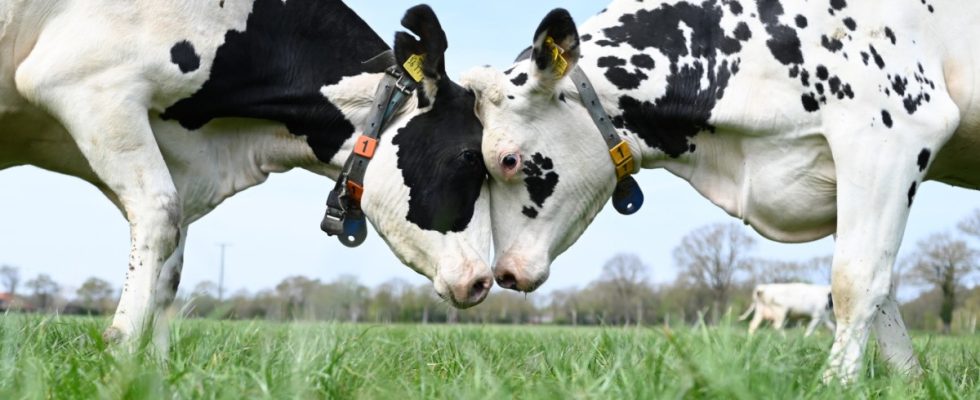Cows have best friends. Goats can communicate with people almost as well as dogs. Pigs are likely to feel compassion for others in need. New research shows that farm animals have thoughts and feelings and are much more similar to humans than long thought. This should finally be taken into account in animal husbandry.
In practice, farm animals are often not treated like living beings, but rather like machines that are supposed to deliver as much meat or milk as possible. Calves, for example, are separated from their mothers immediately after birth so that they don’t drink people’s milk. Mothers often cry for hours after the separation – to assume that there is no emotional component is absurd.
It is also common practice in the dairy industry to constantly reassemble herds of cows. In order to optimize the processes, the animals are divided into different categories: for example, according to how often they have had a calf or according to how much milk they produce. What is ignored is the scientific knowledge that cows maintain friendships and a separation from their best friend is likely to mean pure stress for the animals.
Why are cows and pigs treated worse than dogs and cats?
Admittedly, changing the processes in the company and making sure, for example, not to separate cow friends from each other costs time and money. The same applies to cotton ropes or other toys in pig sties that the intelligent animals can keep busy with.
However, it is ethically necessary and actually long overdue to treat farm animals like living beings that have more needs than just getting enough food. This is taken for granted in dogs and cats. Then why not with cows and pigs? Because people eat these animals?
In the long term, a rethink would also pay off economically. Unhappy farm animals cause costs because they grow more slowly, have poorer immune systems and therefore get sick more often. In general, many win-win situations would arise if people used the abilities of cows, pigs and goats instead of deliberately ignoring them.
Pigs, for example, can learn to go to the feeding station one at a time when they are “called” with a specific tone sequence that is unique to each animal – similar to how people go to the authorities who are assigned a number so that they know when to arrive series are. Such an approach saves the animals the stress of fighting with others over food. The advantage for the farmer is that the pigs thrive better.
People could also benefit from the discovery that cows can be trained to go to the toilet instead of simply dropping dung and urine. Farmers would have less work keeping their stables clean. In addition, less ammonia would be released into the environment, a substance that harms soils, water and the climate.
Unfortunately, it will still be years or even decades before such approaches developed by scientists come into practice. But the first improvements have already been made: heated water beds for piglets, for example, or electric cow brushes that the animals can use to scratch themselves in the stable. And more and more farmers are choosing to leave calves with their mother for as long as possible.

